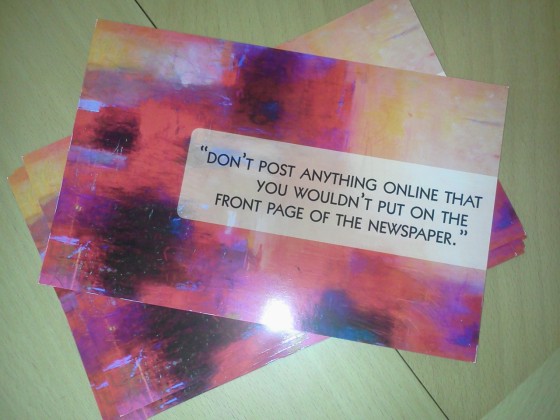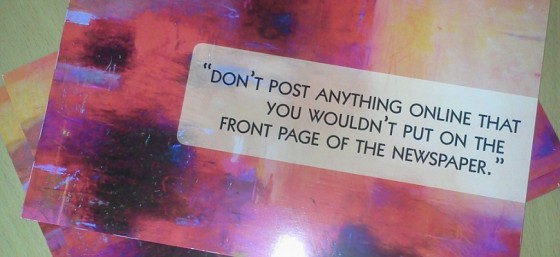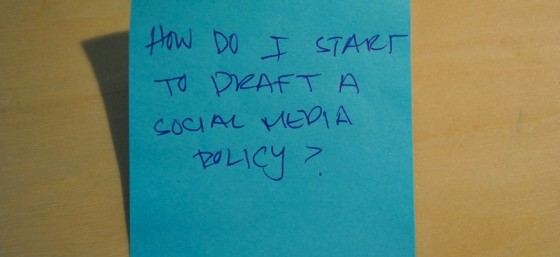You have no expectation of privacy in anything you do or say in public.
It used to be that if you did or said something in public that you later regretted, you only had to worry about the people who saw you repeating it to others. Now that everyone carries a smartphone, you should act as if someone is taking photos and shooting video of you all the time and that the footage is going to end up all over the internet or on the front page of the newspaper.
That means if you say something racist, belittle at server for making a simple mistake, go to a strip club, or get drunk and make an ass out of yourself, you better be prepared for someone to capture that moment with their phone and share it with everyone on the internet. Once it goes out there, you have no control over who will see it.
When I give talks about social media law I tell people to assume that everything they post online will be seen by their best friend, their worst enemy, their boss, and their mother. If they don’t want one of those people to see something, then they shouldn’t post it. Likewise you should assume that these people will see the footage of anything you do in public.
This rule also applies to situations where you’re in public and you don’t know that someone can see you. If you and your significant other decide to have sex in public – like at a park late at night or on the rooftop terrace of your apartment building – you’re chosing to have sex in plain view of the public. The fact that you didn’t think anyone was watching you does not give you an expectation of privacy.
Some people may order you to stop filming them, including the police. If it’s a situation that is in plain view of the public, they don’t have the right to stop you. There may be issues if you’re stalking or harassing someone, but filming a person one time is unlikely to qualify. There is a law that says it’s illegal to refuse to follow a police officer’s order so in that situation you can decide to comply and go after them later for infringing on your rights or post the footage that you have with the story of them ordering you to stop filming. You could also risk getting arrested by refusing to comply and argue to the court that the officer didn’t have valid grounds for giving you that order.
What about the wiretapping law? Arizona is a one party consent state where only one party to the conversation needs to consent to it being recorded. This prevents third parties from intercepting your phone calls or planting a bug near you to record your conversations. This law will protect you against someone spying on you, but if you’re speaking loudly enough for third parties to hear you, you have no expectation of privacy in your conversation.
One right you do maintain is the right to commercialize your image. If someone takes a photo or video of you in public and is making money off of it, you might have a claim that they are commercializing your image without your consent.
Because we live in a world where people are quick to record everything with their smartphones, think before you act. It’s best to be willing to own everything you do or say in public. That way if anyone ever confronts you with your past behavior in an attempt to humiliate you or tarnish your reputation, you can take the wind out of their sails by owning it. But you better be willing to own anything you do in every situation.
For more information about privacy and the internet, please check out my book, The Legal Side of Blogging: How Not to get Sued, Fired, Arrested, or Killed or my video on this topic.
You can also subscribe to the Carter Law Firm newsletter.
You can connect with me on Twitter, Google+, Facebook, YouTube, LinkedIn, or you can email me.
Please visit my homepage for more information about Carter Law Firm.










